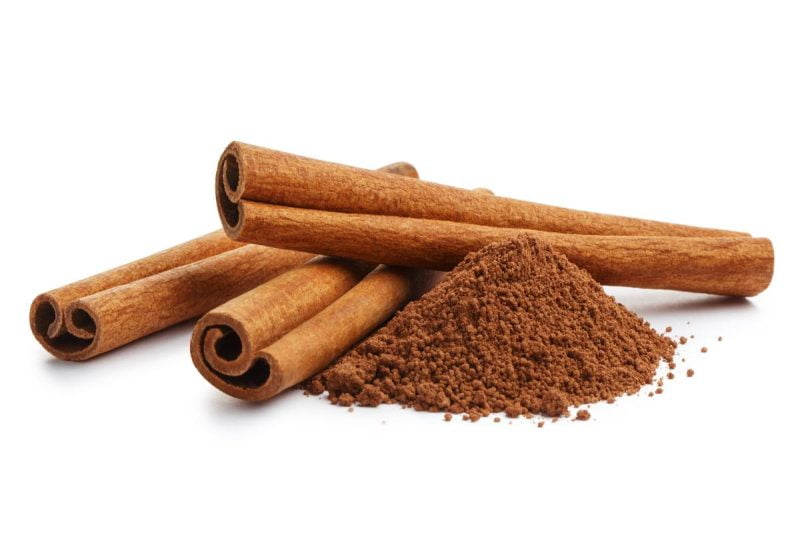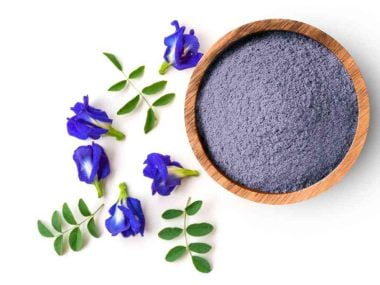Cinnamon, derived from the bark of the cinnamon tree, has a rich history of use as a spice and traditional medicine. It is available as a supplement in various forms, such as capsules, teas, and extracts.
Currently, medical professionals do not endorse it for specific health concerns. While research indicates intriguing potential, further investigation is required to understand its benefits fully.
The benefits includes;
Lower Blood Sugar
Numerous investigations involving both adults and animals with diabetes have explored the potential of cinnamon in lowering blood sugar levels, but not all studies have yielded consistent outcomes.
The precise mechanisms by which cinnamon exerts its effects remain unclear, and there is still uncertainty regarding the appropriate dosage and duration of its impact on blood sugar levels. Further research is needed to comprehend cinnamon’s workings in this context fully.
Boost Metabolism
A lab study has revealed that cinnamaldehyde, an essential oil present in cinnamon, has the potential to specifically target fat cells, encouraging them to burn more energy.
This discovery presents exciting possibilities for individuals seeking to manage weight; however, it’s essential to note that the research is still in its initial phases, and there is considerable progress to be made before drawing definitive conclusions.
Great Skin
If you perform an internet search for “cinnamon face mask,” you will come across numerous DIY recipes that promise to combat pimples and redness. However, the scientific evidence supporting these claims is relatively scarce.
Only one small study indicates that Ceylon cinnamon, in particular, might be effective against the bacteria responsible for causing acne.
Additionally, a separate laboratory study suggests that cinnamon could enhance collagen production, contributing to a more youthful appearance of the skin.
Nevertheless, further research is required to substantiate these findings and fully understand the benefits of cinnamon for skin care.
Help Treat Cancer
Research involving animals or laboratory-grown cells has indicated that cinnamon exhibits promising potential in slowing down cancer growth and even causing the death of tumor cells.
However, to fully comprehend how cinnamon could contribute to curing or preventing cancer, it is imperative to conduct well-designed human studies. These studies will provide valuable insights into the role of cinnamon in cancer treatment and prevention.
Lower Blood Pressure
Numerous studies indicate that consuming cinnamon daily for three months may reduce up to 5 points in systolic blood pressure (the top number).
However, further extensive studies are necessary to validate its efficacy, determine the optimal quantity of cinnamon for achieving the best results, and assess the duration of its effects.
It’s important to note that these studies were conducted on individuals with prediabetes and type 2 diabetes.
Hence, it remains uncertain whether cinnamon has the same impact on blood pressure for individuals without blood sugar issues.
Protect Your Brain
In laboratory experiments, cinnamon demonstrated the ability to halt the accumulation of a brain protein associated with Alzheimer’s disease. Additionally, in a separate study, rats treated with cinnamon showed improved performance in a memory-testing water maze.
However, validating these findings through human trials is crucial to determine if the beneficial effects observed in animal and lab studies translate to humans.
Reduce Inflammation
In a recent laboratory study examining 115 foods, cinnamon emerged as a potent inflammation-fighting agent.
Since inflammatory diseases, such as rheumatoid arthritis, tend to increase in prevalence with age, further research could establish cinnamon as a natural remedy for older adults seeking relief.
Lower Cholesterol
In small-scale research involving 60 adults, an intriguing discovery was made. Over 40 days, the participants consumed approximately 1/4 teaspoon of cinnamon daily. Surprisingly, the study revealed a noticeable reduction in their LDL (“bad”) cholesterol levels.
Moreover, this aligns with previous investigations, which indicate that consistent consumption of comparable amounts of cinnamon for up to 18 weeks can effectively lower LDL and total cholesterol while simultaneously boosting HDL (“good”) cholesterol.
Despite these promising findings, caution must be exercised before considering cinnamon as a definitive treatment for high cholesterol.
Further extensive research and clinical trials are warranted to fully understand the potential benefits and any potential risks associated with cinnamon as a cholesterol management aid.
Fight Bacteria
The remarkable properties of cinnamon enable it to combat a wide array of harmful bacteria known to cause illnesses in individuals, such as salmonella, E. coli, and staph.
This intriguing capability opens up the possibility of utilizing it as a natural preservative in various products, from food items to cosmetics.
Embracing its potential as a preservative could lead to safer and more sustainable preservation methods in these industries.
Get Rid of a Yeast Infection
Cinnamon has exhibited a fascinating ability to eradicate Candida albicans, the fungus responsible for most vaginal yeast infections. These compelling findings stem from laboratory experiments, which have shed light on cinnamon’s potential as a combatant against this troublesome fungus.
However, the practical application of it in fighting off or treating yeast infections remains uncertain and requires further investigation.
The intricate mechanisms by which it combats Candida albicans and its feasibility as a therapeutic approach necessitate more extensive research before considering its use for medical purposes.
Regulate Menstrual Cycles for PCOS
In a meticulously conducted small-scale study, women with polycystic ovary syndrome (PCOS) experienced notable improvements in their menstrual regularity while consuming a daily dose of 1.5 grams (equivalent to approximately 1/2 teaspoon) of cinnamon for six months.
The results were promising, as they positively impacted their menstrual cycles.
However, it is essential to note that insulin resistance and androgen levels remained unaffected by the cinnamon intervention during the study.
Although the findings hold potential, further research is indispensable to fully understand the extent of cinnamon’s impact on PCOS and its associated hormonal aspects.






